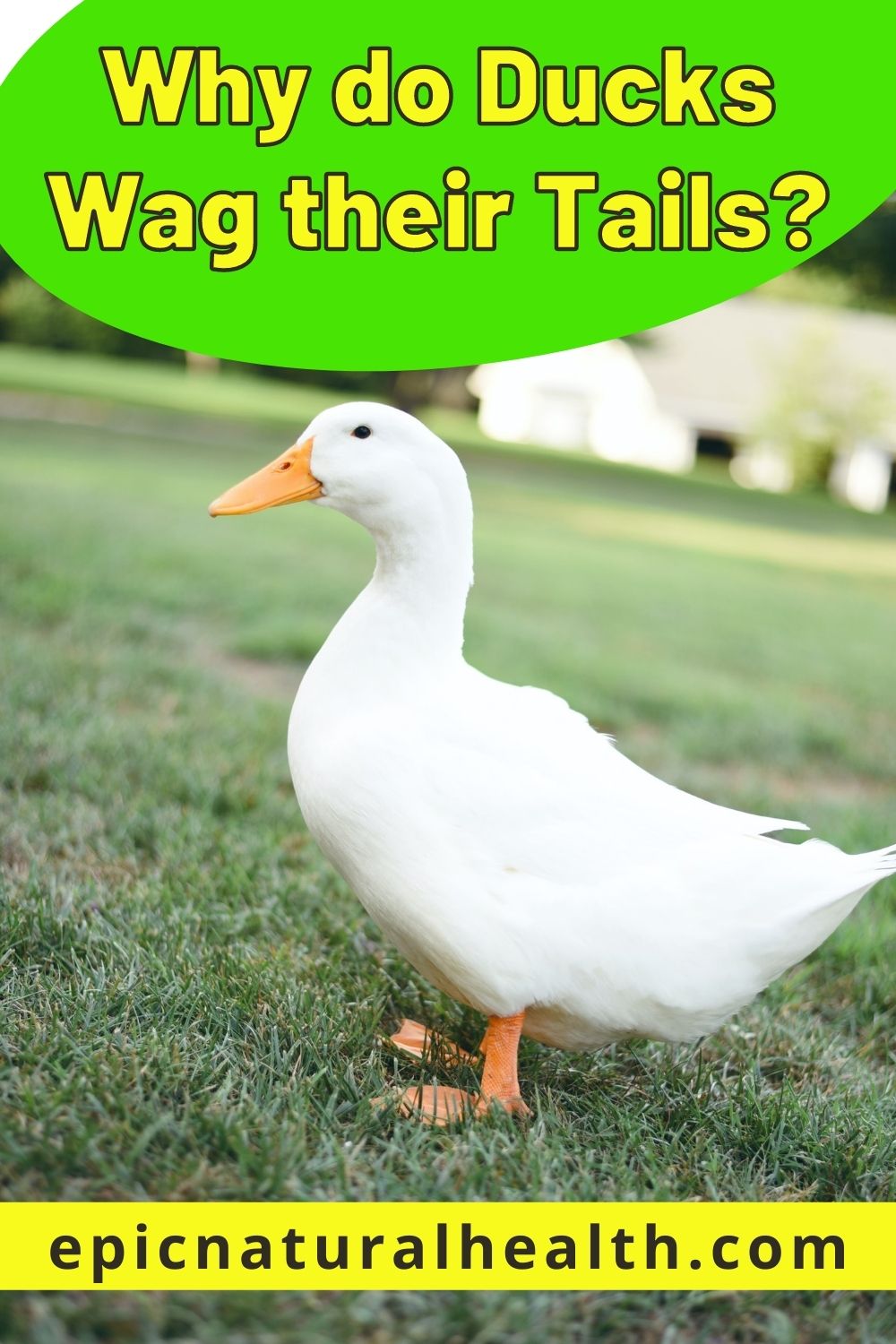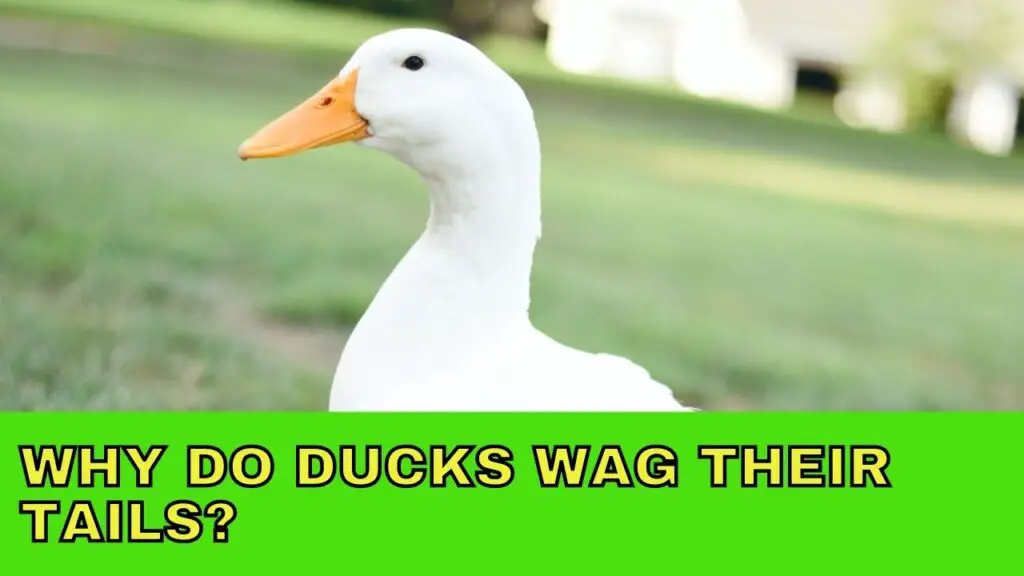Ducks are beloved around the world for so many of their features: their adorable faces, their hilarious waddle, their beautiful plumage and, of course, their wagging tails. If you’ve ever wondered why ducks wag their tails, you’ll find the answer here.
Many of us who have dogs as pets at home will know that a wagging tail is more often than not a good sign. It means that our pet pooch is happy or excited and wants to play. Interestingly, the same can be said for ducks. Many people who have ducks as pets have observed the same tail-wagging behaviour when their ducks are excited or simply happy to see their owners.
But excitement or happiness isn’t the only reason why ducks wag their tails. Just like a dog who’s gone for a swim or has been given a wash and wants to dry off, ducks will also wag their tails when trying to shake all of the droplets of water off their feathers. Ducks’ feathers are waterproof, but the water droplets will still sit on top and pool up if ducks don’t shake them off first.
Finally, during mating season, male ducks will wag their tails to show off to the females in an attempt to find a mate.
What does it mean when a duck follows you?
You may have seen ducklings following their mother in a line. It’s very cute to see – and it happens for a reason. Ducklings follow the mothers due to a process called “imprinting”.
When a duckling hatches, it innately connects to the first thing it sees. It counts on whoever it sees first to provide it with food until it’s old enough to do it by itself. In most cases, this is the duckling’s mother, and therefore, the duckling will follow the mother around as she is its source of food.
In some cases, a duck may follow you around. This may be because the duck imprinted on a human instead of a duck when it hatched. In this case, the duck believes that humans are its source of food.
This imprinting process is impossible to reverse. Once a duck has imprinted on a human, the bonding process is complete, and the duck will identify as a human for the rest of its life.

Why do ducks flap their wings?
You may have seen ducks rise up out of the water and flap their wings vigorously, only to drop back down and continue swimming along their merry way. Why exactly do ducks flap their wings like this?
In certain species of duck, wing flapping is a mating sign performed by the males to attract other females. As ducks are heavy animals compared to the size of their wings, they’re unable to perform manoeuvres like this while flying, so they do it closer to the ground, or water.
However, this isn’t always the case. In fact, the most common reason why ducks flap their wings is simply to stretch and loosen up. Just like a pet dog or cat will often stand up and stretch their front or hind legs, ducks also need to stretch their muscles from time to time. When they’re in the water, though, ducks have to lift themselves up out of the water first in order to be able to flap their wings properly.
Why do ducks quack at night?
Ducks can make many sounds. They can growl, they can chatter and they can even make their own barking sound. But the most common sound we associate with ducks is the quack. In general, male ducks aren't the ones doing the quacking. Females do the majority of the quacking. We hear ducks quack at any time during the day, but they can also be heard quacking at night. Why is this?
Oftentimes ducks use quacking at night time to warn off any predators that may be lurking in the area. They also do this to warn other ducks who are close by of any dangers that may be near.
Ducks will often feed at night time too, meaning that they’ll chat to their fellow ducks while they chow down on some late-night grassy goodness.

